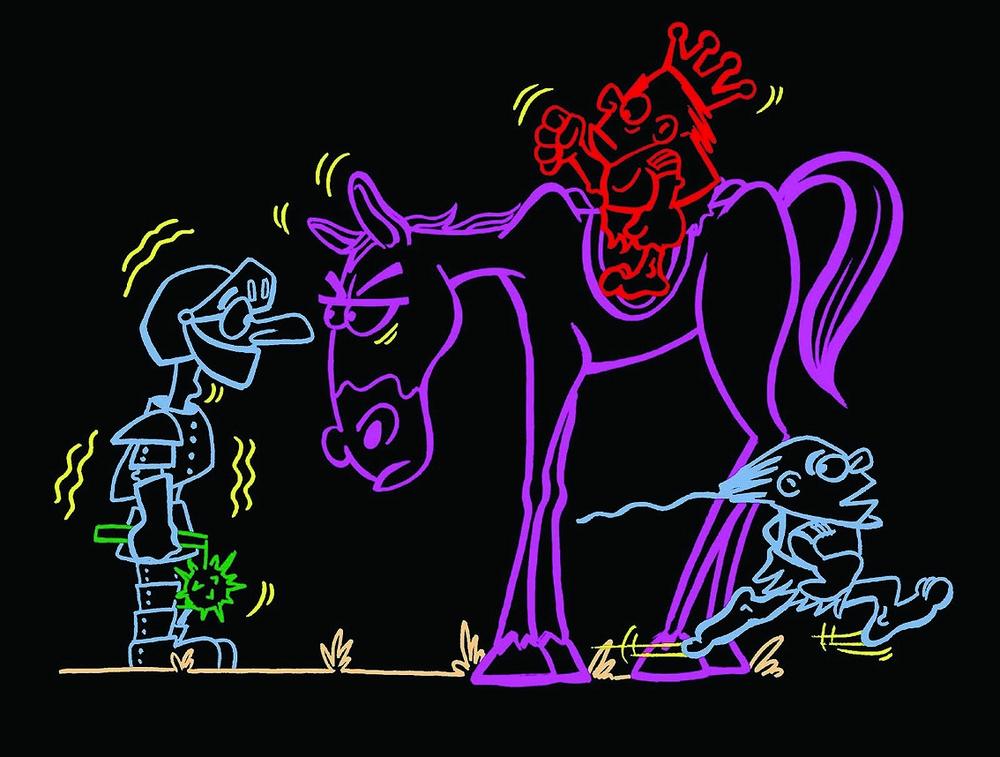On One's High Horse——極度傲慢
** to behave in a superior, arrogant or condescending way(表現得優越、傲慢或居高臨下。)
~~驕傲蠻橫;極度傲慢;逞威風;擺架子;架子十足;目中無人;目空一切;藐視他人;俯視他人;自以為是;高高在上;居高臨下;耀武揚威;趾高氣揚
~~ hoity-toity; high and mighty; above oneself; full of oneself; stuck-up; self-centered; big-headed; high-handed // get on or get off one’s high horse
!! In the royal pageants of Medieval England high ranking nobles customarily rode "high horses" that were much taller than the average ones. The reasons were to emphasize their prominence and be seen better. Riding on one's high horse represented superiority and arrogance. Getting off one’s high horse means becoming humble, modest or less arrogant.
在中世紀的英格蘭皇家盛會中,高級貴族習慣騎着比普通人高得多的“高馬”。原因是要強調自己突出的地位,並讓人們可以看得更清楚。騎在一匹高馬上象徵優越和傲慢,離開高馬意味變得謙卑、謙虛或不那麼傲慢。
>> Many people were glad to see the dot-com executives losing out -- they rode their high horses without regard to the worker bees' plight of long hours and lack of family lives.
很多人很高興看到網絡公司的高管們失敗了──他們驕傲蠻橫而不顧工作人員長時間工作、缺乏家庭生活的困境。
>> When the financial chief received a final written warning for riding on her high horse, being extremely arrogant, completely rude, and almost unresponsive to customers, she resigned.
待人極度傲慢、全無禮貌、對顧客幾乎沒有反應的財務長收到最後書面警告時,她隨之引咎辭職。
學勤進修教育中心
英語專科導師
李啟文 教 授





